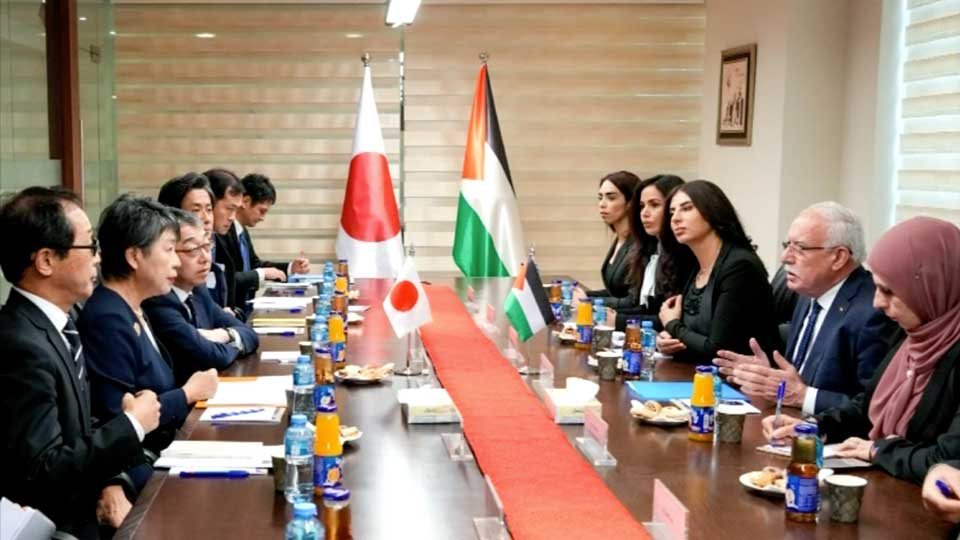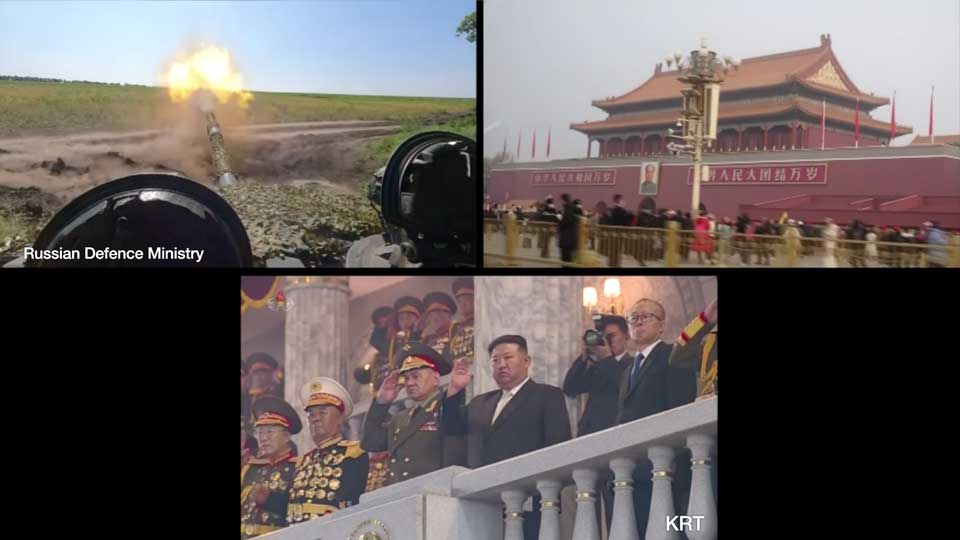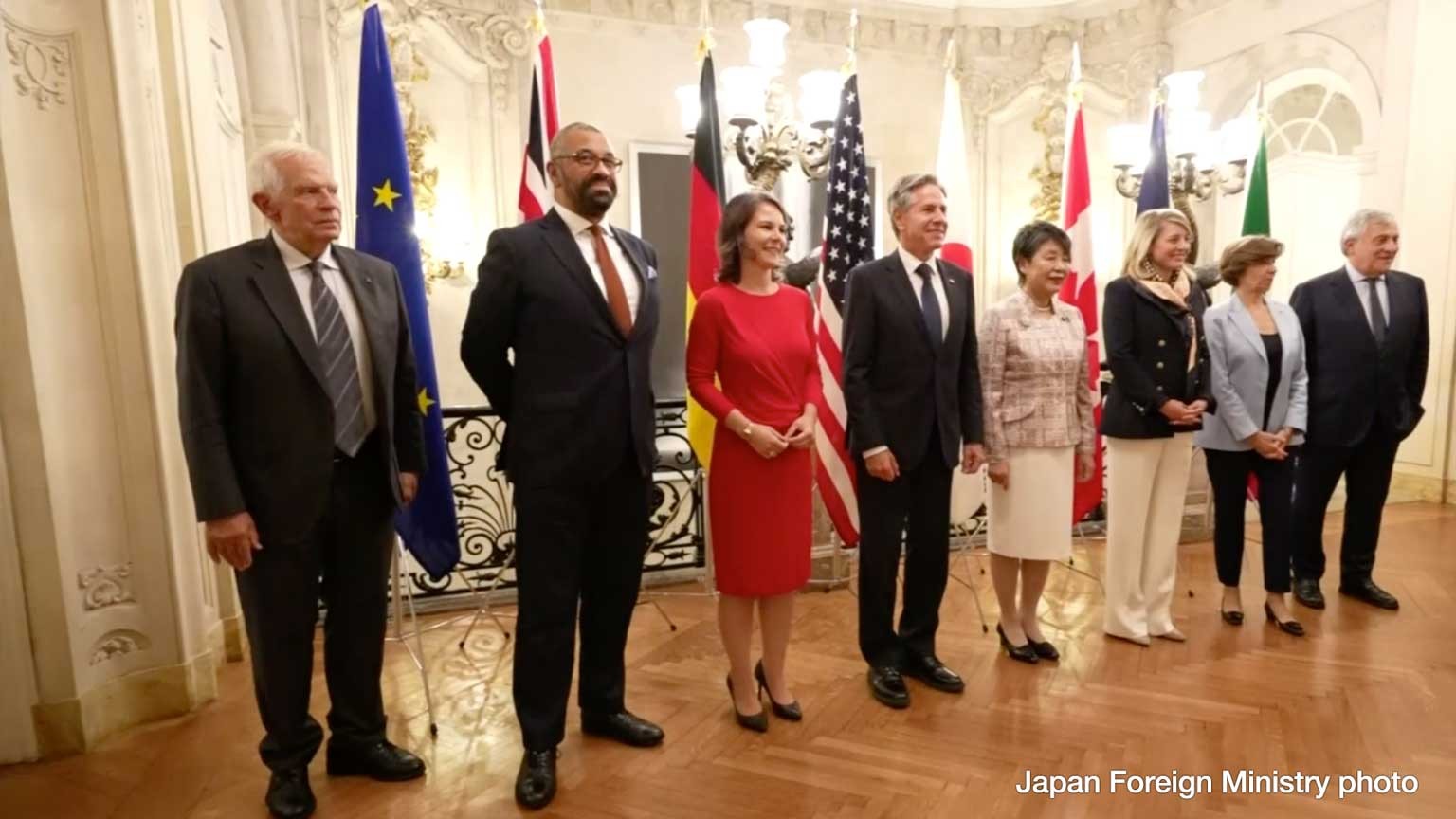Japan will host its second G7 foreign ministers' meeting this year, after the one in Nagano Prefecture's Karuizawa in April. Japan also chaired the September meeting in New York.
After Japanese foreign Minister Kamikawa Yoko visited Israel and a Palestinian-controlled area last week, she said she wants to exchange candid opinions at the meeting.
Japan has condemned the terrorist attacks by Islamic group Hamas. It plans to convey its call for a humanitarian pause as the Gaza district is on the verge of a serious crisis. It is expected to express that securing an environment which allows support activities is important.
Ministers are seen exchanging opinions on issues including Russia's invasion of Ukraine, China's stepped-up activities in the Asia Pacific, and North Korea's nuclear and missile development. They are scheduled to compile an outcome document on Wednesday.
Following are questions about the meeting and answers from NHK newscaster and political correspondent Kato Yuichiro.
QUESTION: Japan is the chair country. What is its diplomatic stance regarding the Israel-Hamas conflict?
ANSWER: Japan appears to be struggling to cope with the situation while considering both sides. The fact that Kamikawa visited both Israel and Palestine on the same day last week is one sign of that.


Q: Why does Japan need to consider both sides?
A: Japan relies on the Middle East for its oil. Tokyo initially did not call the attacks by Hamas "terrorism." Prime Minister Kishida Fumio said on October 8 on the X social media platform that "all the parties concerned should exercise maximum restraint."
Three days later, Japan's vice-minister for foreign affairs held a talk with the Ambassador Extraordinary and Plenipotentiary of the State of Israel and stated that "Japan unequivocally condemns the recent terror attacks by Hamas and other Palestinian militants."
Japan also abstained from a United Nations resolution submitted by Jordan calling for a ceasefire on October 27. The US and Israel voted against it.
But Japan's position is becoming more difficult as the civilian death toll from the Israeli military operation continues to rise.
The question at the foreign ministers' meeting is whether it will result in an outcome that will help calm the situation, while Japan as the host country gives consideration to both sides.
Q: Will the ministers also focus on the war in Ukraine as well as China's activities?
A: The G7 countries face heavy financial burdens from assistance extended to Ukraine. The Japanese government plans to announce public and private support for Ukraine at a meeting of the Reconstruction Promotion Council next year. It hopes to confirm continued support from other countries through the G7's initiative.

Discussion is also likely to focus on how to deal with China. Japan hopes to draw global attention not only to the Middle East and Ukraine but also to Asia once again.
Tokyo aims to keep Beijing in check as it strengthens its maritime advances, while considering its economic circumstances and its strong ties with Russia and North Korea. However, dialogue cannot be neglected due to China's deep economic ties with Japan, which will continue to steer a difficult, careful course.

